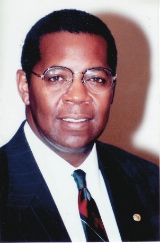
Moving From Insult to Rejoicing
Rev. Joseph R. Reid
A cocky youth pastor wanted to share with young members about self-esteem, so he asked anyone who thought they were stupid to stand up. One kid stood up. The youth pastor was surprised. He didn’t think anyone would stand up so he asked him, “Why did you stand up?” He answered, “I didn’t want to leave you standing up by yourself.” The youth pastor could respond by taking offense but instead he rejoiced.
In 1954 the Supreme Court passed a decision in Brown v. Board of Education, which stated that separate school facilities are inherently unequal and ordered school integration. Southern whites resisted the decision and several southern governors led the way in preventing integration. Here in Alabama, mob rule and violence was used to keep Autherine Lucy, an alumnus of Miles College from enrolling as a graduate student in the University of Alabama. February 3, 1956, Lucy enrolled as a graduate student, becoming the first African American ever admitted to a white public school or university in the state of Alabama. On the third day of classes, a hostile mob assembled to prevent Lucy attending classes. The police were called but that evening the University suspended Lucy on the grounds that it could not provide a safe environment. Lucy and her attorneys filed suit to have the suspension overturned. However, this suit was not successful and was used as justification for her permanent expulsion. University officials claimed that Lucy had slandered the university. The University of Alabama finally overturned her expulsion in 1980, and in 1992, she earned her Master’s degree in Elementary Education from the University that she had applied to decades earlier. Fifty years later 12.6 percent of 31,000 mostly white students are Black. Two years ago Black women at white Southern schools fought for membership in one of the last bastion of segregation, all white sororities – they are still fighting for that right today.
What happened to Lucy occurred throughout the country during the fight for Civil Rights. These abuses gave many of our ancestors a direct understanding of what Jesus meant when He said, “Blessed are you when people insult you, persecute you and falsely say all kinds of evil against you,” But enduring abuse for the sake of what is right and in Jesus’ name is what being a Christian is all about. Jesus says, “Blessed are you when people insult you, persecute you and falsely say all kinds of evil against you because of me.” When we are able to overcome insults and rejoice, we move to the triumph found in the Lord, we come to know what it means to turn the other cheek and to serve. Through Christ’s example we learn perseverance, keeping our eyes upon the prize. That prize is found on earth as well as in Heaven. It is the higher calling of Jesus to serve Him, share the Gospel and help others. Like that old Black American Gospel song says,“Keep your hands on that plow, hold on.”



